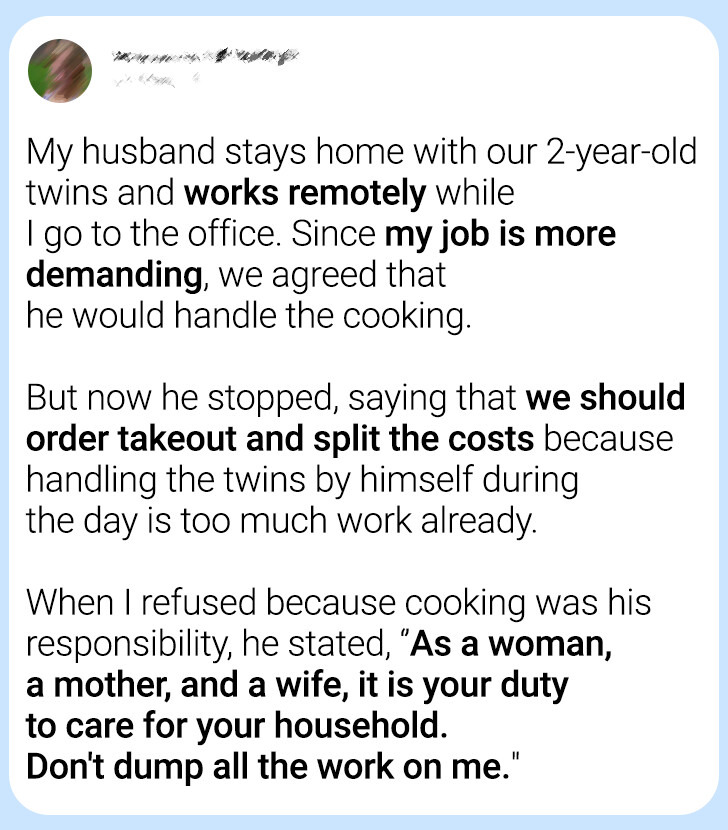Balancing household responsibilities can be a delicate matter for couples, especially when one partner spends more time at home. Joyce and her husband recently clashed over his decision to stop cooking, a task he had previously managed. As tensions mounted, hurtful words were exchanged, leaving Joyce feeling unsettled. The young mother wrote us, seeking guidance on how to navigate this challenging situation.
This is Joyce’s letter:


We’re glad you shared your story with us, Joyce! Here are some tips that we hope can be useful.
Open communication and understanding roles.
Sit down together and have a calm discussion about the division of responsibilities in your household. Acknowledge the challenges each of you faces—your demanding job and his responsibility for caring for the twins during the day.
Clearly define each person’s role and expectations. Consider negotiating a new arrangement that takes into account both of your workloads and needs. Understanding and compromise can help alleviate tension and foster a healthier dynamic.
Seek professional support.
Given the emotional strain this situation has caused, it might be helpful for both of you to seek counseling or therapy sessions, either individually or together.
A professional can provide guidance on effective communication, conflict resolution, and coping strategies. Therapy can also offer a safe space to explore underlying issues, such as gender roles and expectations, that may be contributing to the current conflict.
Empowerment through shared responsibilities.
Rather than viewing household tasks as strictly assigned based on income or traditional and gender roles, consider splitting chores and embracing a more collaborative approach to managing your home.
Encourage shared responsibilities and find ways to support each other in balancing work, childcare, and domestic duties. This not only fosters equality and mutual respect but also strengthens your partnership and creates a more harmonious family environment.
Addressing emotional hurt.
It’s understandable that his last comment about your children’s attachment has deeply affected you. Take the time to process your emotions and address any underlying insecurities or concerns this statement has brought to light. Remind yourself of your strengths as a mother and partner, focusing on the love and connection you share with your children.
Engage in self-care activities that promote emotional well-being, such as journaling, mindfulness practices, or spending quality time with loved ones who uplift and support you. If necessary, consider discussing your feelings with a trusted friend or therapist to gain perspective and work through any lingering hurt.
Kate is another Bright Side reader who has clashed with her husband. The reason was financial, as her husband refused to pay for his stepson’s college tuition, while Kate believes that it is his responsibility to do so. Check out her full story here.




